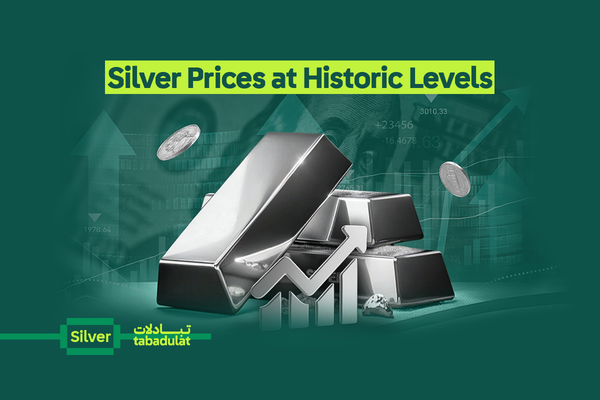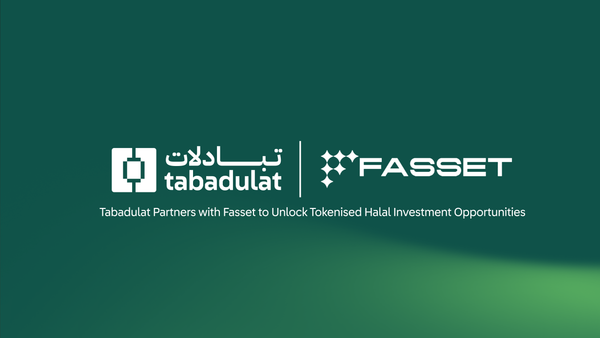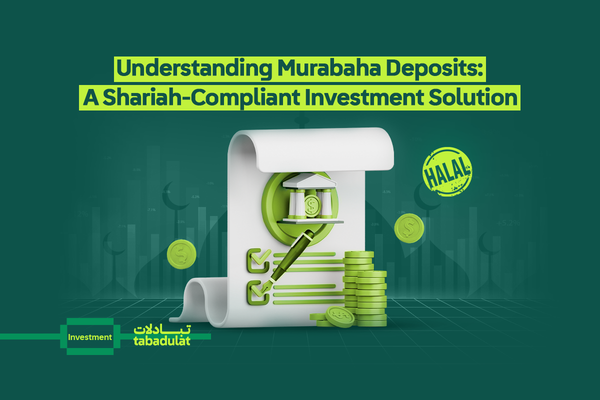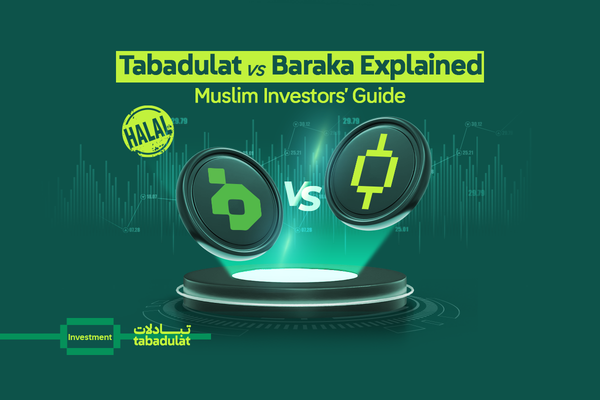Alphabet Surges with AI... But is Google a halal stock?
Alphabet’s profits and AI spending are soaring, but is Google stock halal? Learn how AAOIFI standards screen debt, income, and business activity, and see if Alphabet remains Shariah-compliant for Muslim investors building halal portfolios.
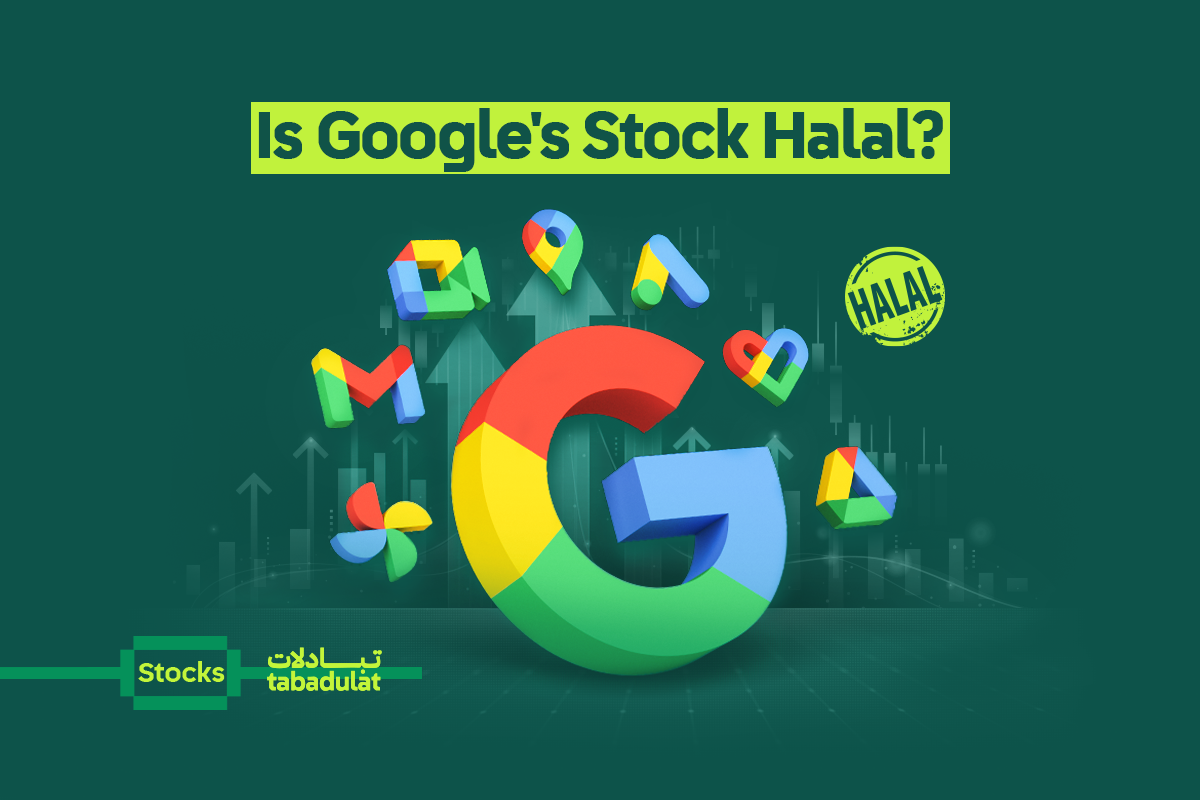
Alphabet’s growth is rewriting the rules of tech investing. It has just reported another blockbuster quarter, soaring profits, a $2.29 trillion market cap, and a $10 billion increase in capital spending to fuel AI innovation.
But if you’re building a Shariah-compliant Islamic portfolio, those impressive numbers are only part of the story. With AI expansion comes new risks: interest-bearing debt, potentially non-permissible income streams, and blurred lines between what’s halal and what’s not. For Muslim investors committed to halal investing, the real question isn’t whether Alphabet is performing, but whether it remains aligned with Islamic financial ethics. Can you still count it as a halal stock? And how does it fit into your broader Islamic investment portfolio, which may already include halal ETFs, Islamic mutual funds, or sukuk bonds? And with so many new tech giants emerging, how do you screen each one for compliance? This post breaks it down with real-time Shariah screening tools and AAOIFI-compliant benchmarks.
Is Googles Growth Halal?
Alphabet’s - the parent company of Google - market capitalisation stands at approximately $2.29 trillion, underscoring its dominance. This impressive size comes from diverse revenue streams: search advertising, cloud services, premium subscriptions, and partnerships in gaming and chip manufacturing.
The company’s latest results confirmed one thing: it’s going all in on AI. The company beat expectations with $96.43 billion in revenue and $2.31 earnings per share, but what stood out most was its spending plan. Alphabet raised its 2025 capital investment target to $85 billion, up from $75 billion earlier this year, driven by growing demand for Google Cloud and AI infrastructure. Cloud revenue alone jumped 32% year over year, reaching $13.62 billion.
Such diversification is a double‑edged sword. On the one hand, it spreads risk and consequently return. On the other hand, it may introduce riba‑based income or other non‑permissible cash flows that could jeopardize Shariah compliance. When a company starts borrowing heavily to fund new datacentres and AI hardware, we must consider whether its debt remains interest‑free and within AAOIFI’s thresholds.
How Do We Screen for Halal Compliance?
AAOIFI's Shariah Standard No. 21 provides a clear framework for Muslim investors to determine if a stock is halal. The standard uses a two-part screening process. First, a qualitative screen checks the nature of the company's business to ensure it does not engage in forbidden activities like selling pork, alcohol, or gambling. Second, a quantitative screen analyzes the company's financial ratios, requiring that interest-bearing debt and interest-earning investments each not exceed 30% of its market capitalization. Additionally, haram income must be less than 5% of the company's total revenue. If any ratio is breached, the stock fails the screen.
Is Alphabet Stock Halal?
Alphabet remains halal today. Its debt levels and non‑halal income fall within AAOIFI thresholds. But its AI‑driven expansion means these metrics could change next quarter. Tabadulat’s halal stock screener automatically tracks these metrics across more than 40,000 stocks and ETFs. You don’t need to guess whether a stock fits your values; you can check it in seconds. Some investors also use Zoya, another screening tool, but Tabadulat offers deeper analysis and remains completely free.
Don’t forget to explore other tech giants; for example, Nvidia is also surging in AI. To learn if other tech titans like Nvidia are halal, read our blog on whether Nvidia is halal for Muslim investors. Ongoing vigilance, coupled with the right tools, lets you align your investments with your faith and values.
How Does Islamic Finance Differ From Conventional Financing?
Conventional finance relies on fixed‑interest loans and allows unlimited speculation. Islamic finance, in contrast, is built on fairness. It forbids riba and instead promotes profit‑and‑loss sharing.
Instruments like sukuk bonds give investors ownership in tangible assets and share the returns without charging interest. For investors who wonder how to invest in sukuk bonds, the process is similar to buying bonds, though you purchase a share of an asset, not a loan. If you want to diversify beyond tech and into infrastructure or real estate, sukuk can be a powerful tool. Tabadulat’s screener helps you identify sukuk and other asset classes that align with your values, from halal ETFs like HLAL to Islamic mutual funds and screened equities.
Can a Muslim Invest in Google?
Analysts remain confident in Alphabet’s long-term strength, highlighting its strong cash flow and rapid innovation. But some warn that rising AI investments and future regulations could bring more risk and debt. In the Middle East, investors are excited about AI too, but only when it fits within Shariah-compliant structures. The region has led the way in creating halal financial tools like sukuk, proving that growth and faith-based investing can go hand in hand. Major indices like the Dow Jones Islamic Market and S&P Global Shariah already apply AAOIFI standards, helping investors filter out non-compliant stocks. If you're investing through these indices or related halal ETFs, you're already one step ahead in building a clean, ethical portfolio.
Every Muslim investor must decide whether to hold individual stocks, ETFs, sukuk or a mix. Consider your risk tolerance and how active you want to be. Is online trading halal in Islam? Yes, if you avoid margin and ensure every trade complies with Shariah guidelines. Whether you prefer halal stocks, halal ETFs or sukuk, you should verify each holding’s compliance. Tools like Tabadulat let you screen companies daily, compare them with data from platforms like Zoya, and build a diversified, riba-free portfolio. You can then focus on building wealth and giving back through zakat without worrying whether your gains come from haram sources.
FAQs
Is Google a halal stock?
Yes. Google’s parent company, Alphabet, currently meets AAOIFI’s halal screening standards. Its debt and non-halal income remain within permissible thresholds. However, with heavy AI investments and borrowing, compliance could change quickly, so ongoing screening is essential
Is Alphabet a Shariah-compliant investment?
Alphabet is Shariah-compliant as of now, since its interest-bearing debt and haram income are below AAOIFI limits. Yet, future AI-driven expansion and higher financing needs may shift these ratios. Muslim investors should use tools like Tabadulat to track real-time compliance
Why is Shariah screening essential in halal investing?
Screening verifies that your portfolio is free from riba and haram income. It helps ensure your investments align with Shariah and Islamic banking standards, protecting your wealth and conscience.
Can I invest in halal ETFs?
Yes. Several ETFs track shariah‑compliant stocks in the USA and globally. Examples include SPUS and HLAL. These funds avoid riba and haram sectors and provide diversified exposure to halal equities.
How does profit sharing work?
In Islamic finance, returns come from the success of the business, not from fixed interest. Investors share profits and losses. This principle underpins sukuk and Islamic venture capital, fostering fairness and transparency.
Is it possible to make halal money online?
Yes. By using platforms like Tabadulat to screen stocks and investing in halal ETFs, sukuk and shariah‑compliant companies, you can build a portfolio that’s both ethical and profitable. Just avoid margin, derivatives and haram business lines.
Why do people ask if investing is haram?
Many worry about riba, gambling and excessive uncertainty. Proper screening and adherence to Shariah guidelines make investing halal. By using AAOIFI standards and trusted screeners, you can invest confidently.

